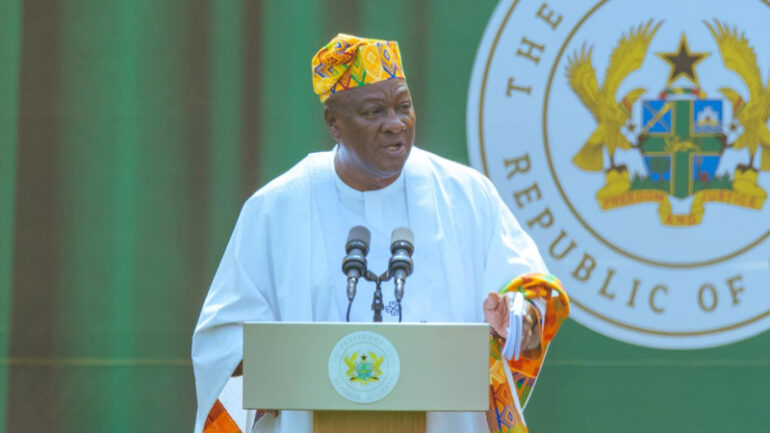
Since gaining independence, Ghana’s political journey has been marked by periods of instability, especially due to successive military coups. These interruptions created a fractured political landscape, making it difficult for citizens to assess with certainty whether military or civilian democratic rule has better served the country’s development. Even today, opinions remain divided.
In the Fourth Republic, political leadership has been dominated by two main parties: the New Patriotic Party (NPP) and the National Democratic Congress (NDC). While both have taken turns leading the nation, neither has consistently delivered the level of social and economic progress that Ghanaians expect. Many citizens still feel deprived of the full benefits of good governance and economic welfare.
Over the last eight years under the NPP government led by President Nana Akufo-Addo, many Ghanaians have become disillusioned. Promises made during the 2016 and 2020 campaigns — often packaged with heavy doses of propaganda and emotional appeal — have not materialized in the way citizens had hoped. There’s a growing sentiment that political messaging was more about winning votes than presenting realistic and honest plans for national development.
The 2024 general elections served as a turning point. The massive defeat of the NPP at the polls suggests that Ghanaians have grown politically mature — able to look past catchy slogans and scrutinize the track record of leadership. Despite this, the NPP seems slow to reflect meaningfully on its loss and continues to engage in the same patterns of propaganda and political deception.
This new era — shaped by a more informed and critical electorate — demands a higher standard of communication and accountability. Politicians must understand that in today’s digital information age, statements made today can and will be used against them tomorrow. This has been especially true for Dr. Mahamudu Bawumia, whose past remarks and campaign rhetoric were widely circulated and used to discredit him during the 2024 campaign.
With John Dramani Mahama returning to the presidency for a constitutionally final term of eight years, the NPP must shift from blame and spin to serious introspection. Rather than seeking public sympathy through media theatrics, the party must embrace the core values of democratic engagement and policy-driven opposition.
In just his first 120 days, President Mahama has set a tone of disciplined leadership. If sustained, this approach could reshape the perception of the NDC as a party not just reliant on Mahama’s popularity but capable of competent governance beyond him. Should this trend continue, the NDC may avoid major setbacks in future elections even after Mahama exits the political stage.
So the question stands: What is left for the NPP to fight for in the next election?
To move forward, the NPP must return to its ideological foundation, rebuild trust among its base, and address internal fractures that threaten its future. The internal divisions — worsened by what many see as a “divide and rule” approach under former President Akufo-Addo — have alienated key figures. Some former party leaders have even formed new movements, diluting the party’s strength and contributing to its historic defeat.
Moreover, the NPP must seriously rethink its use of propaganda. The dangers are real and well-documented:
The Dangers of Political Propaganda
-
Erosion of Truth and Facts
Propaganda distorts facts, making it harder for citizens to make informed choices. -
Manipulation of Emotions
It exploits fear and anger, distracting the public from rational debate. -
Suppression of Dissent
Critics are painted as enemies, silencing valuable opposition. -
Division and Polarization
It promotes an “us vs. them” mindset, deepening societal divides. -
Undermining Democracy
When lies dominate political messaging, fair elections are compromised. -
Long-Term Societal Damage
Over time, propaganda normalizes falsehoods and erodes trust in institutions.
The NPP is currently battling a crisis of leadership and cohesion. If the party hopes to reclaim its place in Ghana’s political future, it must abandon the politics of deception and focus on rebuilding credibility, unity, and a clear policy agenda that resonates with an increasingly discerning electorate.
By: Alexander Kukah




